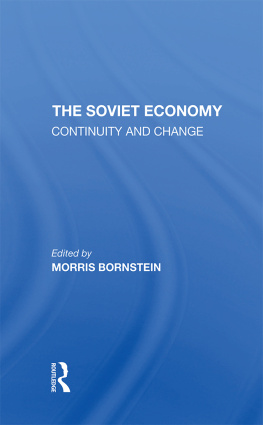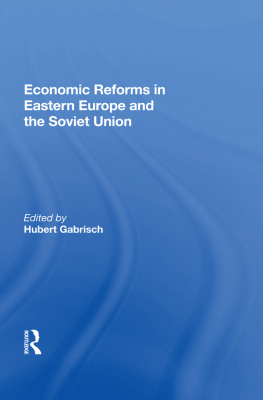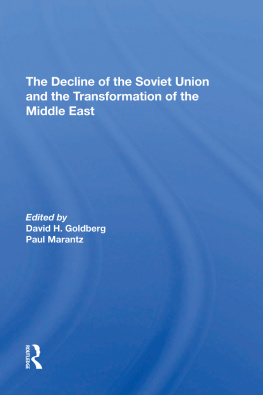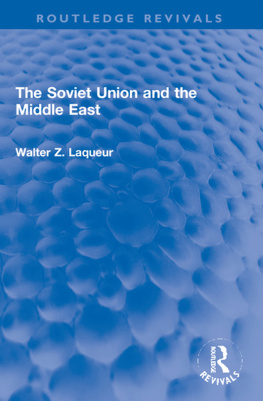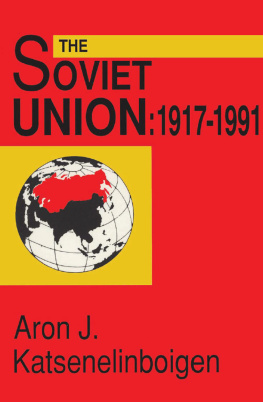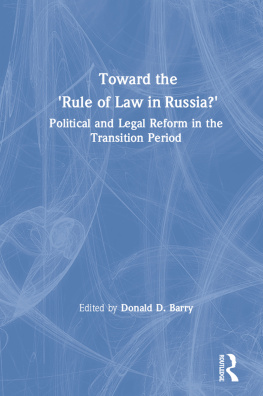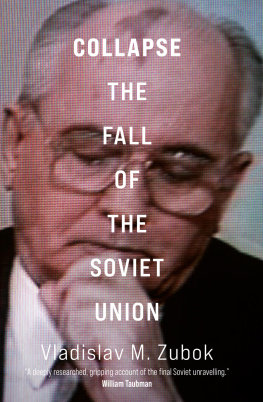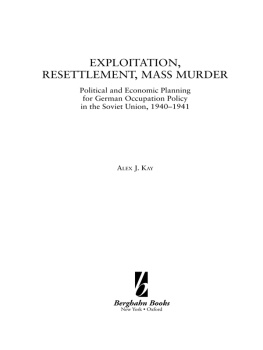
Law and Economic Development in the Soviet Union
Westview Replica Editions
The concept of Westview Replica Editions is a response to the continuing crisis in academic and informational publishing. Library budgets for books have been severely curtailed. Ever larger portions of general library budgets are being diverted from the purchase of books and used for data banks, computers, micromedia, and other methods of information retrieval. Interlibrary loan structures further reduce the edition sizes required to satisfy the needs of the scholarly community. Economic pressures (particularly inflation and high interest rates) on the university presses and the few private scholarly publishing companies have severely limited the capacity of the industry to properly serve the academic and research communities. As a result, many manuscripts dealing with important subjects, often representing the highest level of scholarship, are no longer economically viable publishing projects--or, if accepted for publication, are typically subject to lead times ranging from one to three years.
Westview Replica Editions are our practical solution to the problem. We accept a manuscript in camera-ready form, typed according to our specifications, and move it immediately into the production process. As always, the selection criteria include the importance of the subject, the work's contribution to scholarship, and its insight, originality of thought, and excellence of exposition. The responsiblity for editing and proofreading lies with the author or sponsoring institution. We prepare chapter headings and display pages, file for copyright, and obtain Library of Congress Cataloging in Publication Data. A detailed manual contains simple instructions for preparing the final typescript, and our editorial staff is always available to answer questions.
The end result is a book printed on acid-free paper and bound in sturdy library-quality soft covers. We manufacture these books ourselves using equipment that does not require a lengthy make-ready process and that allows us to publish first editions of 300 to 600 copies and to reprint even smaller quantities as needed. Thus, we can produce Replica Editions quickly and can keep even very specialized books in print as long as there is a demand for them.
About the Book and Editors
Law and Economic Development in the Soviet Union
edited by Peter B. Maggs, Gordon B. Smith, and George Ginsburgs
In the past, Soviet policymakers, planners, and jurists, in their enthusiasm for economic and technological development, devoted little attention to the often negative consequences of modernization. New concerns, however, have become apparent in recent literature, statutes, and decrees. In this book, political scientists and experts on Soviet law address many of those concerns, analyzing the legal issues associated with economic modernization in the USSR.
The central themes of the book are the increasingly centralized nature of the policymaking process in the USSR and Eastern Europe and the marked tendency to rely on law as a principal mechanism for managing the undesirable consequences of scientific and technological progress. The authors also assess the impact of the scientific-technical revolution on Soviet-East European relations and East-West relations, emphasizing the foreign policy consequences of increased financial and technological interdependence.
The study does not deal with narrow legalistic issues of technical progress; rather, its focus on policy questions reflects the inclination of Soviet and Eastern European governments to view those questions in terms of law and legislative activity and to see law as an instrument of social engineering.
Peter B. Maggs is professor of law at the University of Illinois at Urbaina-Champaign. Gordon B. Smith is associate professor of government and international studies at the University of South Carolina.
George Ginsburgs is distinguished professor of foreign and comparative law at Rutgers University Law School.
Law and Economic Development in the Soviet Union
edited by Peter B. Maggs ,
Gordon B. Smith , and
George Ginsburgs
First published 1992 by Westview Press, Inc.
Published 2018 by Routledge
52 Vanderbilt Avenue, New York, NY 10017
2 Park Square, Milton Park, Abingdon, Oxon OX14 4RN
Routledge is an imprint of the Taylor & Francis Group, an informa business
Copyright 1992 Taylor & Francis
All rights reserved. No part of this book may be reprinted or reproduced or utilised in any form or by any electronic, mechanical, or other means, now known or hereafter invented, including photocopying and recording, or in any information storage or retrieval system, without permission in writing from the publishers.
Notice:
Product or corporate names may be trademarks or registered trademarks, and are used only for identification and explanation without intent to infringe.
Library of Congress Catalog Card Number: 82-50689
ISBN 13: 978-0-367-01926-6 (hbk)
Contents
by Peter B. Maggs
by Robert Sharlet
by Stanislaw Pomorsk
by Yuri Luryi
by Gordon B. Smith
by Peter B. Maggs
by Donald D. Barry
by Zigurds L. Zile
by George Ginsburgs
by Erik P. Hoffman and Robbin F. Laird
This book results from a research project made possible by the assistance of a number of institutions and individuals. The research was funded by a contract from the National Council for Soviet and East European Research. Members of the research group have found the staff of the National Council most helpful and cooperative in facilitating this work. We owe a debt of thanks in particular to Paul Josephson for his assistance and insightful comments on substantive questions connected with the research.
The initial findings of the team's research were presented at a working conference at the Rutgers University School of Law in Camden, New Jersey. Two Rutgers' faculty members have contributed papers to the present volume. Discussants including Professors John N. Hazard and D.A. Loeber were also of great assistance to the authors.
Professor F.J.M. Feldbrugge deserves special thanks for his kindness in making the facilities of the Documentation Office for East European Law of the University of Leyden available to a number of the researchers.
Finally our thanks go to Ms. Victoria Powell, a third-year law student at the University of Illinois, for her careful proofreading and correction of the text and to Ms. Brenda Nolan, business manager of the University of Illinois College of Law for her patient handling of both the financial and word-processing aspects of the research project.
P.B.M.
G. B. S.
G.G.
1
Introduction: The Legal Impact of Modernization in the USSR
Peter B. Maggs
The present book contains the results of the second year of a two-year study of law, the scientific and technical revolution (STR), and economic modernization in the Soviet Union and Eastern Europe. Gordon Smith summarized the results of the first year's work as follows:
The success in realizing the fruits of the [scientific and technical revolution] will depend in large measure on the ability of socialist societies to master it. To date, the Soviet and East European leadership has, for the most part, chosen to pursue moderate or conservative means of harnessing the scientific and technical revolution. Legal norms reflect this orientation and will help to shape it in the immediate future, forming the basis upon which critical policy choices will be made.




